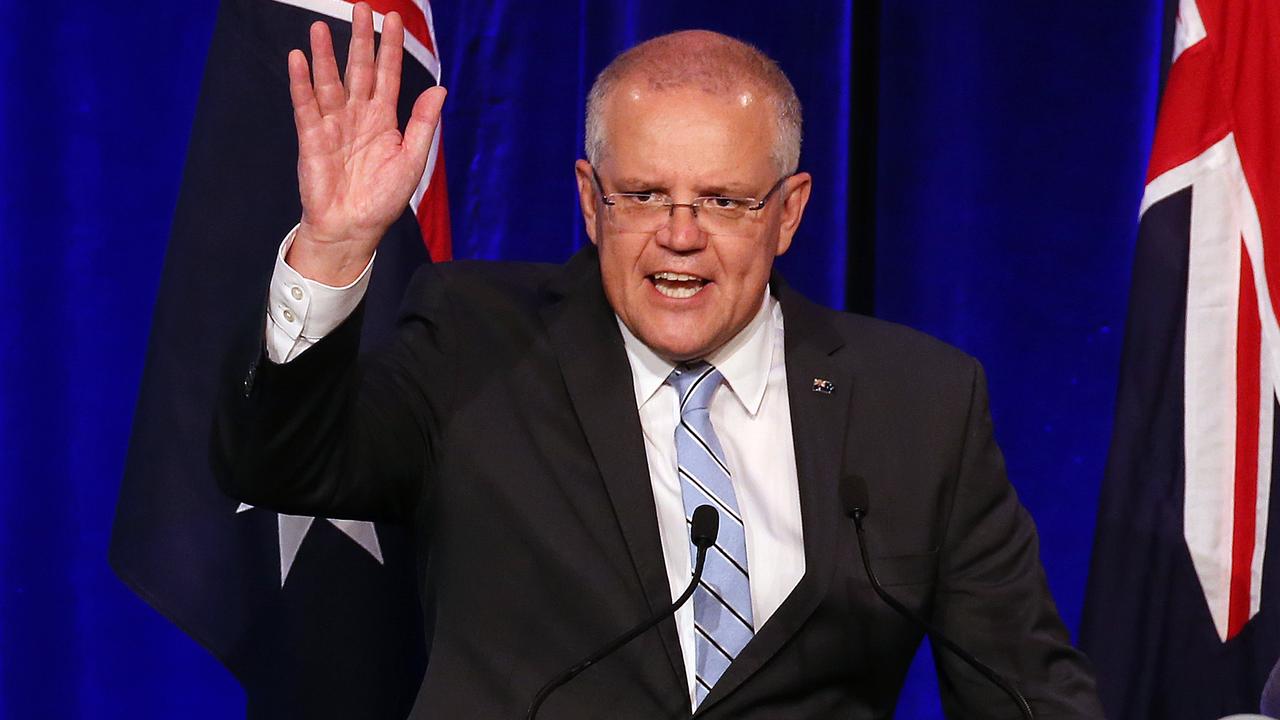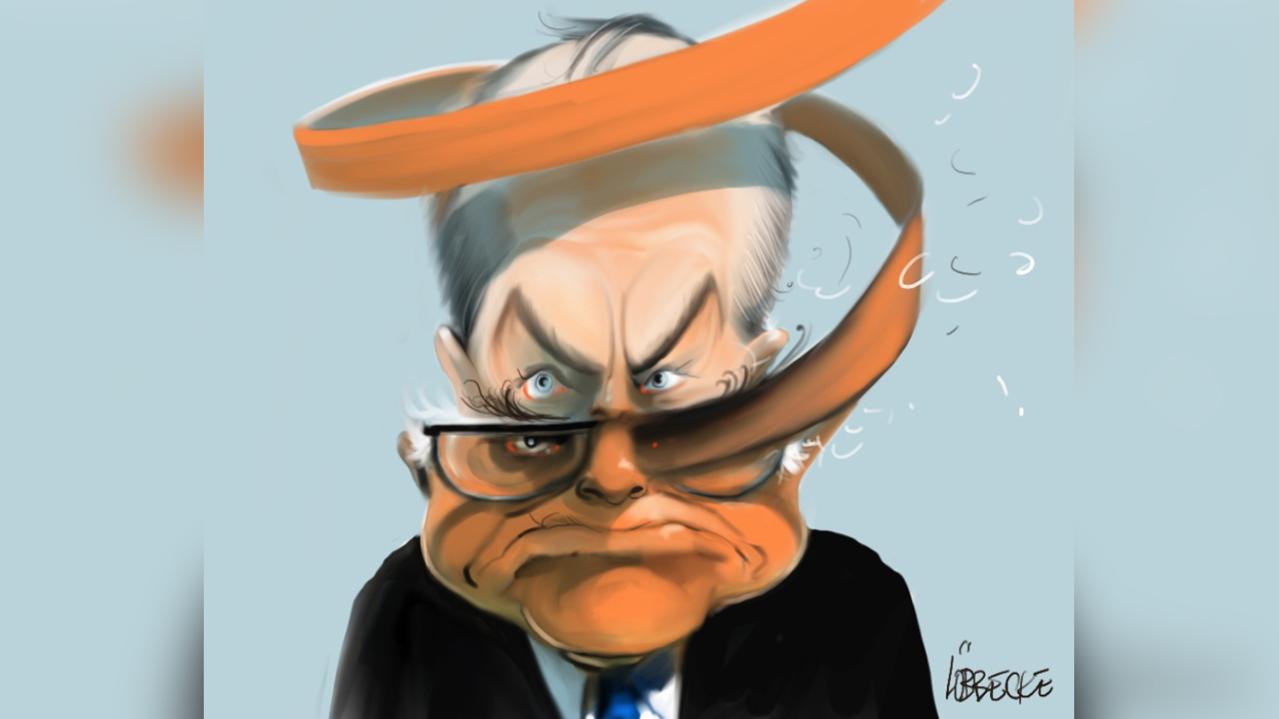Democracy is a prized commodity too
FOR all the talk about Australia needing to balance its relations with our traditional alliance partner, the US, and our economic meal ticket, China, one simple reality should never be forgotten as we bask in the afterglow of President Barack Obama's 28-hour visit: the US is a democracy; China is a totalitarian dictatorship.
This differential underpins why we must not lose sight of our traditional links to the US and what they mean for the preservation of our political culture. Too often the role of capitalism in modern economies has contributed to a clouding of the central importance of democracy to the institutions we take for granted.
In fact, the pursuit of improved economic wellbeing by the West has helped China lift itself out of poverty without being expected to embrace democratic institutions. Emblematic of the level of development in China today is the consultancy firm McKinsey's prediction that China will build 50,000 more skyscrapers by 2025. Its power is certainly rising.
If world leaders had their time again they might reconsider, for example, the decision to grant China entry to the World Trade Organisation without first floating its currency. This continues to confound policymakers.
While there is no turning back history, and engagement with China is now the only option, despite its oppressive regime, Australians should be mindful of what China represents and how it compares with the US.
For all its faults as a democracy, and there are many both now and historically, the US supports a free press, China opposes it. The US has a good human-rights track record (not unblemished, mind you), China does not. The rule of law in the US is one of the most robust anywhere in the world. In China the opposite is true, as Australian businessman Matthew Ng found out when he was charged with bribery. Or Rio Tinto executive Stern Hu, who was sentenced last year to 10 years in prison.
As Tony Abbott said in his parliamentary address in the presence of Obama on Thursday, the US is the most benign superpower the world has seen. We don't yet know how China will measure up on this score. It continues to develop at a rapid rate: 9 per cent annual growth during the past three years. But only economically and militarily. Political development has been much slower.
Which is why it was a disgrace that President Hu Jintao was invited to address the Australian parliament in 2003. The idea that a leader of a non-democracy would be permitted to address a democratic parliament should offend every elected politician
the world over. While that moment in time paved the way for closer economic ties (such as the 2006 agreement to export uranium to China), it was an overreach at the expense of our democratic principles.
And it left us weakened when continuing to express concerns about China's treatment of Tibet, for example.
Australia has a lot to gain as we move deeper into the Asian century, there is no doubt about that.
Our geographical location, combined with our natural resources, mean we are well placed to prosper as the populated countries around us (China, India and Indonesia) grow more wealthy. And we should not fear greater integration within the region, whether it includes a closer role within ASEAN or military exercises with our close neighbours.
But China is its own phenomenon: both a problem and an opportunity for the West, including Australia. In his latest book, Civilization, economic historian and Harvard University professor Niall Ferguson notes that part of China's reason for losing its dominant position globally prior to the beginning of the 15th century was its unwillingness to embrace capitalism and geographic expansion. Today that has changed, perhaps embedding some certainty about the inevitability of China's rise to superpower status.
You only need to observe the way China is moving through African states, taking advantage of their failed-state status, to understand its approach to geographic expansion beyond its greater China sovereign state ambitions.
The big question now is whether China's ongoing development, so central to Australian economic prosperity, hits a road block, courtesy of a failure to embrace democratic institutions. The emergence of democracy as a factor in Western dominance over the past 500 years was one of Ferguson's six pillars in Civilization.
No doubt the Chinese people have just as much a love for freedom and democracy as Australians do, if they turn their attention to the issue. For them, however, the first priority has long been economic development. Political empowerment, so far, has not been a priority for the majority of Chinese. Even within the emerging middle class, economic (not political) empowerment is far and away people's focus.
If, or more likely when, China is forced to front up to a transition to democracy it could get messy. That will only happen when China hits its own version of post-materialism, a concept raised in the construct of Western nations by American political scientist Ronald Inglehart in the 1970s. That is, when the Chinese people are sufficiently economically well off that they seek greater political rights.
As much as Australia should welcome such a transition, the economic impact in the short to medium term -- especially if it comes about through revolution -- could be dire on trade-dependent countries such as ours, a sign of just how important China has become to the Australian economy.
The alternative, however, is more worrying. An ever more powerful undemocratic China would mean Australia should stay grateful for our strong alliance with the US, of which the new deployment in Darwin is part. Our mutual self-interest in preserving democracy will always be more important than what China can offer us economically. America critics should remember that.
Peter van Onselen is a Winthrop professor at the University of Western Australia


